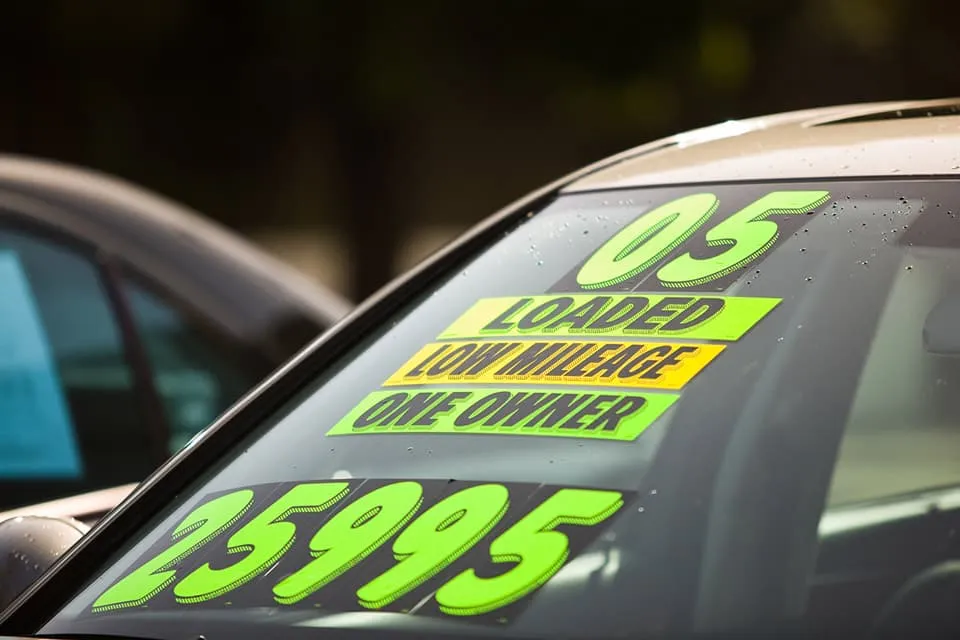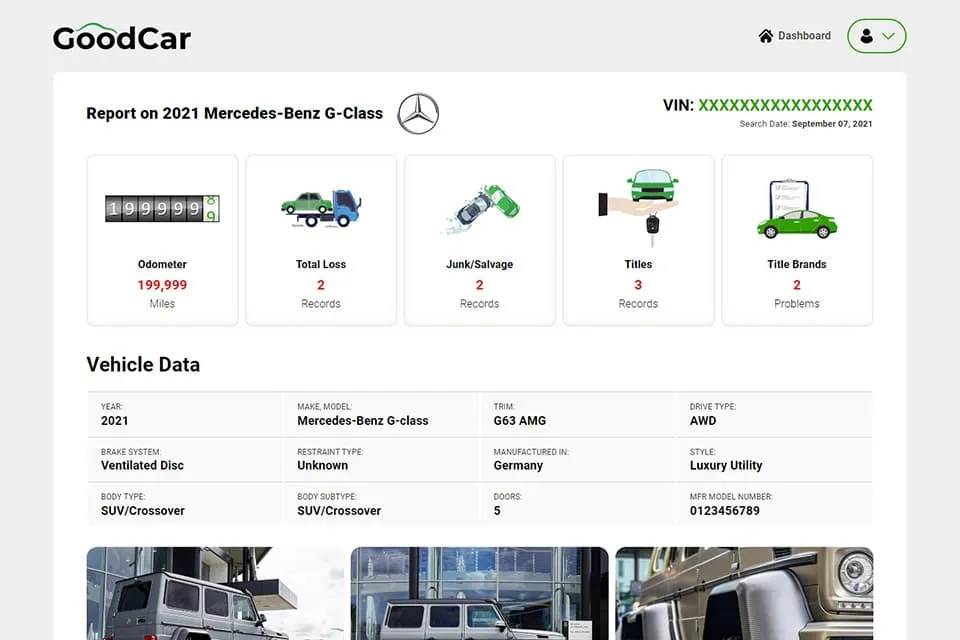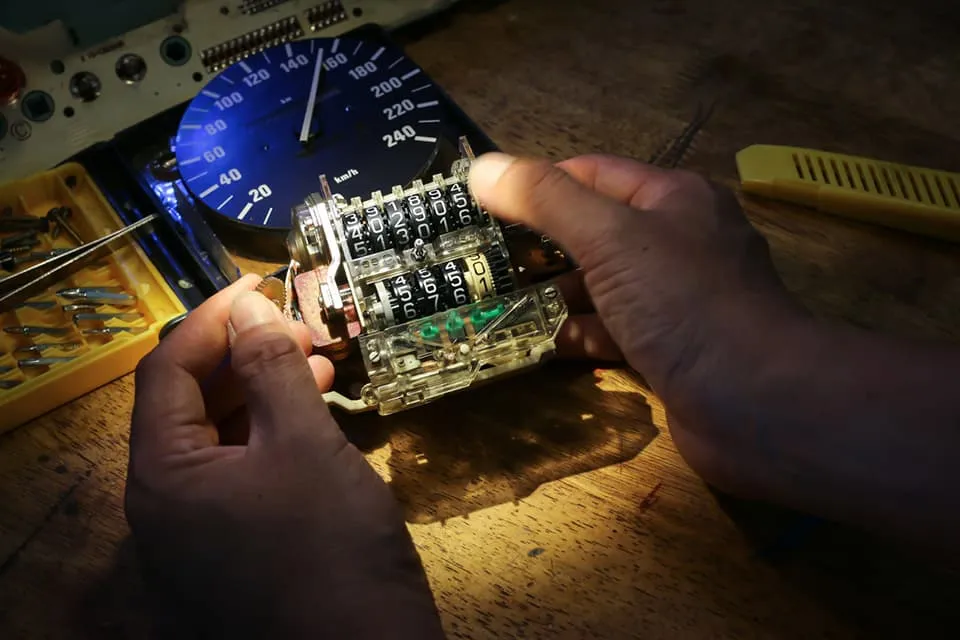Guide to Getting a Good Deal on a Used Car

Getting a car on a budget can be stressful, and purchasing a used car is the best option for many looking to find reliable transportation. Unfortunately, getting the best deal can be difficult; between finding the car you want, dealing with used car scams, and negotiating a good price, buying a car may seem like more trouble than it's worth. The good news is, by taking the right steps, you can ensure that you get an affordable vehicle you can depend on for years to come.
4 Tips on How to Get a Good Deal on a Used Car
Tip #1: Choose a Good Financing Plan
One of the biggest problems when it comes to getting a great deal is dealing with that initial sticker price. Even when you shop used, a vehicle is still a major purchase. The best way to get a decent car for a reasonable price is to use a financing plan. Many dealerships will offer a way to lease a car or purchase it on loan, allowing you to make monthly payments instead of one lump sum.
Yes, buying a car can help you avoid the interest and fees that come with a financing plan, but that isn't always an option. If you need a car now, and enough to make payments on time, you'll want to get one through a lease or loan. You can even calculate your payments ahead of time with a lease or loan calculator, like the free one offered by GoodCar. That way you can see whether a vehicle fits in your budget before you finalize your terms.
Tip #2: Get a Vehicle History Report

The only way to get a good deal on your car is by learning everything you can about the vehicle you intend to purchase. The usual procedure when researching a used car is to search through endless databases and documents; this process can take hours, and it's sometimes difficult to find accurate and up-to-date information.
With a vehicle history report this research is done for you, with algorithmic programs automatically pulling information from thousands of databases. This data is then distilled down into one accessible document; you can use this document to help aid in negotiation, confirm the accident history of a car, and make sure that the price you are paying is appropriate.
These reports can produce all kinds of useful details including:
Title Records
Junk/Salvage Records
Insurer "Total Loss" Records
Pricing
Sales History
Problem Checks
Auto Specs
Location History
NHTSA Crash Test Ratings
NHTSA Recalls
Awards and Accolades
Manufacturer Information
By bringing your report to the dealership, you can check each piece of information with a representative to make sure the car's paperwork is accurate. This can help you avoid being scammed, as many unscrupulous sellers will falsify data to get a better price off a junk car.
Tip #3: Learn to Identify Scams

One unfortunate fact about buying a used car is you'll need to be on the lookout for car scams. Car-buying scams have only increased in frequency in the past few years and falling prey to one can end up costing you thousands of dollars. Luckily, you can watch for the common signs and identify them early to avoid losing money. The most frequent car-buying scams include:
- Title Washing: Title washing is a scam that involves taking a damaged or junked vehicle and completing the cheapest repairs possible; the goal with these repairs is to make the vehicle appear functional just long enough to sell. These scammers then transport the vehicle across state lines and try to find the least professional inspection agent they can. Once they acquire a clean title, they can sell this compromised car for a much higher price.
- The "Lemon" Scam: We've all heard of a lemon, but what happens if you buy one? Purchasing a "lemon" car can be dangerous; these vehicles are advertised as being in good condition, but in actuality are barely functioning. Often used in conjunction with a title washing scheme, this car could have a large number of defects, putting you in danger of being stranded when it brakes down (or injured if the car fails to function properly.)
- Odometer Rollback: High mileage is one of the biggest factors that affect a car's value, so it makes sense that scammers would try to obscure this information any way possible. Odometer rollback is a form of vehicle tampering involving the artificial adjustment of a car's odometer. This allows scammers to claim the vehicle has lower mileage, letting them markup the car's price and sell it to an unsuspecting buyer.
- Selling a Stolen Vehicle: In trying to find the best deal, we'll often ignore red flags. This can lead you to buying a car at a price that seems too good to be true. Unfortunately, this could mean the car is stolen. Stolen vehicles are usually sold at rock-bottom prices so they can be unloaded quickly. It may not be obvious that a car is stolen, and you might not find out until you receive a call from the police or get pulled over.
- Junk Vehicles, Title Issues, or Damaged Cars: Hiding the information about a vehicle can be advantageous to scammers, who will try to offload merchandise that has hidden faults. This can be done by falsifying paperwork, neglecting to provide the title, or performing small superficial repairs. Fake information is especially frequent with flooded cars, whose damage can be hidden temporarily. It's only after you drive the car for a while that you'll notice the mildew smell or waterlogged internal instruments.
Tip #4: Don't Be Afraid to Negotiate

Learning how to negotiate used car prices is one of the best ways to get a better deal. Many buyers falsely believe that prices are set in stone, but this just isn't true. It's not uncommon for dealerships to be open to negotiation on the price of a vehicle, often lowering the price if you can identify defects they didn't notice. This is where that vehicle history report comes in handy; sometimes dealers may know about an issue with the car, but not share it with potential buyers. By showing them an accident history or recall report, negotiating used car prices can be simple and easy.
Good Car Deals Frequently Asked Questions
How Much Can You Negotiate on a Used Car?
The exact number you'll be able to negotiate on a used car depends on the make, model, and year of the vehicle you intend to purchase. You'll also want to look for dealerships with reviews containing the word "negotiate" in them; if other consumers have reported that these dealerships are open to price negotiation, that's a great place to start your search. Negotiating a car's price can help you lower your monthly payments, saving you hundreds (if not thousands) of dollars.
What Percent Can You Negotiate Off a Used Car?
While dealerships vary on what their profit margin requirements are, the average amount you can lower a used car's price by is around 15%. Many dealers account for a 20% gross margin in the original asking price, so they'll still be making about 5% profit with your offer. This is more effective with less-desirable vehicles; if you try this tactic with the best car on the lot, you may run into difficulties.
What Should You Not Say to a Used Car Dealer?
There are a number of things you shouldn't say to a used car dealer; saying the wrong thing can lead them to increasing the price or taking advantage of your lack of knowledge. Never claim that you don't know much about cars, or that you are desperate for a vehicle. This will lead them to selling you a car with issues that they have probably been struggling to sell. You also shouldn't insult the used car dealer; many people will bring up common salesmen tropes to their dealer, which can offend them. If a dealer doesn't like you, they probably won't be open to negotiation.
What is the Best Way to Price a Used Car?
The best way to price a used car is to do as much research as you can and use tools like the ones available from GoodCar. These can show you a vehicle's residual value, along with other factors that affect a car's worth like accident history and mileage. You can also use the information provided by your report to determine whether a car is being priced fairly; without all the available data on-hand, it's much easier to be overcharged or even scammed.
What Are Good Questions to Ask When Buying a Car from a Dealership?
It's always good to ask as many questions as possible before finalizing a car purchase. Make sure to ask the dealership about the mileage, whether they would be open to negotiation, what types of warranties they offer, how many owners the vehicle has had, and whether the car has ever been in an accident. If the salesman is trustworthy, they'll answer all of your questions without hesitation. If they want to hide something about the car's history, they'll usually avoid certain questions or answer vaguely. In these cases, it's always best to consult your vehicle history report.
FREE Vehicle Search
- Accidents
- Problem Checks
- Title Records
- Recalls
- Values
- Specs
-
InfoPay, Inc. (dba GoodCar) is an Approved NMVTIS Data Provider
-
-


























